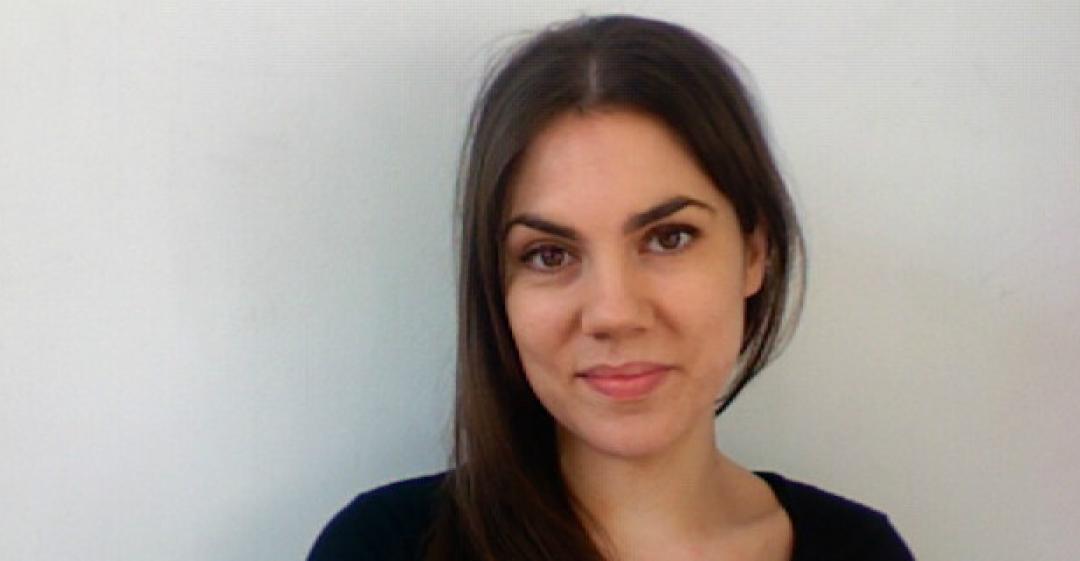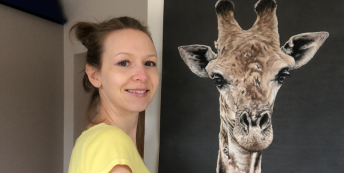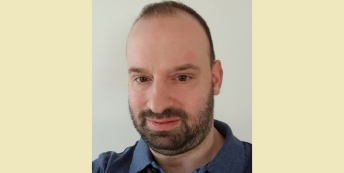“The bragging rights just weren't worth the endless hours.”

What were you doing previously?
I worked in the film industry as an assistant music editor.
This meant I worked with my editor, the composer and the director to get the score for a film conceived, recorded and edited to the picture. It was an exciting role – the highlights were working with Hans Zimmer, Tim Burton and Danny Elfman.
What are you doing now?
Now I'm doing a couple of different things.
Week to week, I work in colleges, interpreting classes into British Sign Language for deaf students. I'm not a fully qualified interpreter yet; I'm what's known as a Communication Support Worker, but interpretation is essentially what I do!
I'm also a voice-over artist! It's not at all what I ever planned on being, but I really love it. I built up a little business of my own doing it, and then, after two years of working independently, I signed with an agent last August.
When was the moment you decided to make the change?
About six weeks into my first film job as a runner, I knew I wouldn't stick at it forever. Although the job could be exciting at times, and I was slowly clawing my way up a career ladder, I found the bragging rights just weren't worth the endless hours I spent at work. I wouldn't see my friends for weeks on end, and my twenties passed in a blur of work and sleep.
It wasn't until I met my current boyfriend, who is an artist and totally carefree, that I realised this wasn't how life should be – spending time with the people you love and doing things that improve your interest in the world around you is much more valuable.
Are you happy with the change?
I'm happy that I have so much more time to spend living my life, and I really enjoy being more in control of the work I do.
But I'm also realistic.
I understand that although I've decided to change the route my life is taking, it doesn't necessarily mean everything is going to be completely perfect. For instance, I've sacrificed a decent wage for more leisure time. This is an example of how I've had to let go of the idea of achieving perfection, and be prepared to go with the flow. I've been ready to make further changes as I realise what is and isn't right for me.
Personally, I would take the time over the money any day of the week.
What do you miss and what don't you miss?
I miss the money!
I occasionally miss the prestige that comes with working on big films, although it's a load of nonsense really.
I don't miss being at work at two in the morning.
How did you go about making the shift?
That was quite easy for me.
I tended to finish working on one film and then start another, with gaps in between that usually involved pestering my contacts for another job. But in May 2012, I finished a film and decided that was it! I wasn't going to hunt around for the next one to work on.
My boyfriend was living in Berlin at the time. I'd saved enough money, from working all the time and not having a life, to go out and live there with him for five months. It gave me time to think about what I wanted from life, and what my interests were, which is what led to me deciding to learn sign language.
How did you handle your finances to make your change possible?
This was where the voice-overs came in.
I had my savings, but while I was in Berlin I thought about what I could possibly do to earn money. I had all this recording and sound editing experience, and a bit of a generic Southern Counties accent; I thought "I wonder if anyone needs a cheap voice-over to be done?". It turns out they did!
My little enterprise grew and grew in popularity; I haven't stopped since.
What was the most difficult thing about changing?
It's the same thing that remains the most difficult thing now; I'm not entirely sure where it's all going.
I could end up making a full-time living from voice-overs, which I'd absolutely love, but is by no means guaranteed. Or I could train to be a qualified sign-language interpreter, but I'm still not sure I have the confidence to do that.
There's every chance that I might have to start all over again with something completely different, which I'm prepared for; knowing I've done it once already makes me confident I could do it again if I have to.
What didn't go well? What 'wrong turns' did you take?
I think I'm still in the process of finding that out.
My career change has been quite unusual, and largely unplanned. I haven't had such a definitive goal as other people changing careers might have, who, say, decide they want to become a teacher and set out to achieve that. Instead, I seem to be trying my hand at a lot of things. And because my career change is still happening, I haven't really had the chance yet to look back on things and assess where I've screwed up.
That said, I'm quite impulsive when it comes to making decisions, so I'm not even sure I'd recognise a 'wrong turn' unless it was completely catastrophic. If I thought about the decisions I'm making too much, I'd talk myself out of them!
What help did you get?
My parents helped me out financially with my second sign language course, and were endlessly encouraging.
And my boyfriend, Ross, who is an absolute laid-back rock, continues to support me unfailingly every time I have a wobble and think I'm doing everything wrong.
What have you learnt in the process?
Without wanting to sound overly dramatic, the whole process has really changed my entire outlook on life.
It's made me think about what I want to have achieved by the end of my life, and that isn't necessarily a high-flying career anymore.
If I'm successful at what I do, then great. But if I'm not, and I've tried everything I can to be happy, to do work that is rewarding and allows me time with my loved ones, then that's OK too. I've learnt that there is a way of making any decision work for you. I never planned to do voice-overs, but now I absolutely love it. And that has also taught me that I'm a massive show-off!
What do you wish you'd done differently?
I don't think I could have done it differently. I did it in the way that presented itself to me.
What would you advise others to do in the same situation?
If you are unhappy in what you are doing, then make a change.
Life is far too short not to; the worst thing would be to look back on your life and wish you'd done it differently. But be prepared for sacrifices, and be prepared to change again, if necessary.
What resources would you recommend to others?
I wish I'd known about the Careershifters website when I was first doing it!
You can find out more about Rachel's voice-over work at www.rhubarbvoices.co.uk
What lessons could you take from Rachel's story to use in your own career change? Let us know in the comments below.



